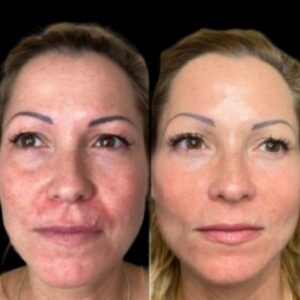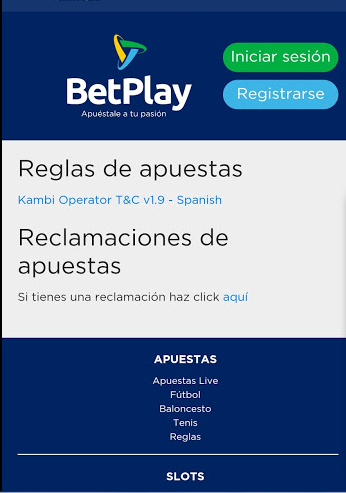
Vitamin Water
Staying hydrated is essential for overall well-being, and countless beverage brands highlight their functional ingredients to attract health-conscious consumers. Among them, Vitamin Water has gained enormous popularity as a flavorful alternative to plain water, promising added nutrients and enhanced energy. But is it actually a healthy hydration option or simply another sugary drink with attractive packaging? In this detailed guide, we explore the benefits, drawbacks, ingredients, and science behind vitamin-infused beverages to help you make an informed choice.
Water is the foundation of health, but not everyone enjoys drinking it throughout the day. This gap in consumer preference has opened a market for enhanced waters—drinks that promise hydration plus additional nutrients. Many people see them as a convenient way to increase vitamin intake or boost energy. But understanding what goes into these drinks is crucial before relying on them daily.
In the broader pursuit of Wellness for life, more people are becoming aware of how product marketing can influence health decisions. While vitamin-enriched drinks may appear beneficial at first glance, it’s important to look closely at the nutritional makeup, sugar content, and overall impact on long-term health goals.
What Is Vitamin-Enhanced Water?
Vitamin-enhanced water is a category of beverages infused with additional nutrients such as B-complex vitamins, vitamin C, electrolytes, and sometimes herbal extracts. These drinks are marketed as healthier alternatives to soda, sports drinks, or artificially flavored beverages. They commonly come in a range of flavors designed to make hydration more enjoyable.
Typical Ingredients Found in Vitamin-Enhanced Waters
Many brands share similar ingredient profiles, which often include:
-
Purified water
-
Cane sugar, fructose, or alternative sweeteners
-
Vitamins such as B3, B5, B6, B12, and C
-
Natural flavors
-
Electrolytes like magnesium, potassium, and calcium
-
Food colorings
Although these ingredients may seem beneficial, the actual nutritional value varies significantly between brands.
Potential Benefits of Vitamin-Infused Hydration Drinks
Vitamin-enhanced water can offer some advantages, depending on the formulation and how it is consumed. Below are some of the most commonly cited benefits.
1. May Help Cover Minor Nutrient Gaps
For individuals who struggle to meet daily vitamin requirements through diet, fortified beverages can provide an additional boost. Vitamins like B6 and B12 support energy metabolism, while vitamin C contributes to immune function.
However, it’s essential to note that these beverages usually supply only part of the daily recommended amount—not enough to replace whole foods or supplements where necessary.
2. Encourages Better Hydration Habits
Many people do not drink enough water simply because they find plain water boring. Flavored options can make hydration more enjoyable, encouraging people to drink more throughout the day.
Maintaining adequate hydration:
-
Improves cognitive function
-
Supports digestive health
-
Enhances skin appearance
-
Regulates body temperature
-
Boosts overall energy
3. Convenient for Active Lifestyles
Some vitamin waters contain electrolytes that help replenish minerals lost during physical activity. For individuals engaging in moderate exercise, these beverages can be a convenient alternative to sports drinks, which often contain higher levels of sugar and artificial additives.
Is Vitamin Water Actually Healthy? A Closer Look
To understand whether vitamin-enhanced drinks are genuinely beneficial, it is important to analyze the nutritional content and compare it with bodily needs.
Sugar Content and Its Impact
One of the biggest concerns surrounding vitamin-infused beverages is their sugar content. While marketed as “health drinks,” many varieties contain:
-
15–32 grams of sugar per bottle
-
Calories ranging from 100–150
-
Added sweeteners like crystalline fructose
This level of sugar is comparable to some soft drinks. Excessive sugar intake has been linked to:
-
Weight gain
-
Increased risk of type 2 diabetes
-
Poor dental health
-
Energy crashes due to rapid insulin spikes
Even if the sugar is derived from “natural” sources, it still contributes to these negative health effects.
Are You Getting Too Many Vitamins?
Though it may seem unlikely, overconsumption of certain vitamins—particularly water-soluble types like niacin (B3) or vitamin B6—can lead to adverse effects when consistently consumed in high amounts.
Possible symptoms include:
-
Flushing
-
Nausea
-
Nerve discomfort (rare but possible with excessive B6)
While a single bottle won’t push you into toxic levels, drinking multiple vitamin-enhanced beverages daily could easily exceed recommended limits.
Artificial Colors and Flavors
Some fortified beverages contain artificial colors or flavors to enhance appearance and taste. While generally recognized as safe, these additives may be unnecessary or unsuitable for individuals seeking a cleaner, more natural hydration source.
Comparing Vitamin-Enhanced Water with Healthier Alternatives
To evaluate whether these drinks are the best hydration choice, it’s useful to compare them with other beverages.
1. Plain Water
The gold standard of hydration. Zero calories, zero sugars, and essential for every bodily function. For most people, plain water remains the healthiest option.
2. Electrolyte Drinks
Designed for athletes or those engaging in intense exercise. These drinks contain higher electrolyte levels but often more sugar. They are best reserved for high-intensity workouts or long endurance activities.
3. Homemade Infused Water
A natural and low-calorie alternative. Simply add:
-
Lemon slices
-
Cucumber
-
Mint
-
Berries
This provides subtle flavor, antioxidants, and a refreshing experience—without unnecessary sugars or preservatives.
4. Coconut Water
A natural source of potassium and electrolytes, coconut water can be a healthy choice for hydration after exercise. However, it also contains calories and should be consumed in moderation.
When Vitamin-Enhanced Water Can Be Beneficial
Despite concerns, there are scenarios where these beverages can offer practical benefits.
During Mild Physical Activity
If you’re doing light workouts or sweating moderately, the small amount of electrolytes in vitamin waters may be enough to support hydration.
For People Who Won’t Drink Plain Water
In cases where individuals consistently fail to meet hydration needs, flavored alternatives may serve as a stepping stone toward healthier habits.
Travel and Convenience
Multitasking hydration with nutrient intake can be useful when on the go, especially when healthier beverages aren’t available.
When You Should Avoid These Drinks
Not everyone benefits from vitamin-infused waters. They should be consumed cautiously—or avoided—by:
-
Individuals with diabetes or insulin sensitivity
-
People trying to lose weight
-
Children, due to sugar content
-
Anyone taking vitamin supplements (to avoid excessive intake)
If you fall into any of these categories, you may be better off choosing sugar-free or unsweetened alternatives.
How to Choose a Healthier Vitamin-Infused Drink
If you decide to enjoy these beverages, here’s what to look for on a label:
Check for Low or Zero Sugar
Choose varieties sweetened with natural, low-calorie alternatives like stevia or erythritol.
Prioritize Clear Ingredients
Avoid products with artificial dyes or excessive additives.
Review Vitamin Levels
Ensure the drink does not exceed 25–50% of daily recommended values, especially for B vitamins.
Look for Electrolytes if Needed
If your goal is exercise recovery, select options that include potassium and magnesium.
Frequently Asked Questions
1. Can vitamin water replace a multivitamin?
No. These drinks contain limited amounts of vitamins and cannot fully replace a comprehensive multivitamin supplement.
2. Is vitamin water suitable for daily use?
Occasional consumption is fine for most people, but daily use—especially sugary varieties—may lead to excess calorie and sugar intake.
3. Are sugar-free versions healthier?
Yes. Sugar-free options reduce calorie intake and eliminate the risk of sugar-related health concerns.
4. What’s the healthiest way to stay hydrated?
Plain water remains the best choice. However, adding natural flavors at home can make hydration more enjoyable without added sugars.
Final Verdict:
Vitamin-enhanced water can be beneficial in certain situations, particularly for people who dislike plain water or need a convenient hydration option on the go. Its added nutrients and flavors make it appealing. However, the potential drawbacks—especially high sugar content and low nutritional value compared to whole foods—mean it’s not as healthy as it appears.
As with most beverages, the key is moderation. Used occasionally and wisely, these drinks can fit into a balanced lifestyle. But for daily hydration, plain water or homemade infused variations remain superior choices.





